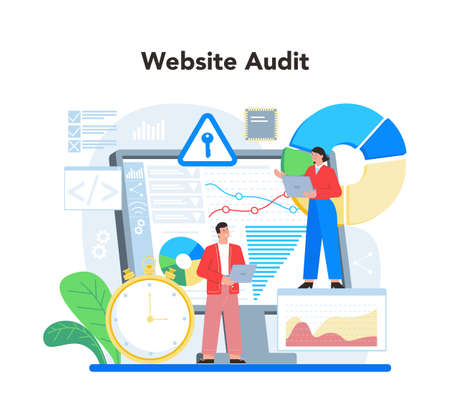The British SEO Landscape: A Quick Overview
When it comes to understanding Google penalties and navigating the world of toxic backlinks, appreciating the nuances of the UK’s search environment is essential. Unlike global markets, the British SEO scene is shaped by local consumer behaviour, regional dialects, and a competitive focus on British-based businesses. From London’s bustling financial sector to Manchester’s growing tech hub, companies across the UK must tailor their SEO strategies to reach a savvy audience that values authenticity and relevance. Google’s algorithm updates increasingly reward websites that demonstrate genuine authority within their niche, making localised link building and content creation more important than ever. Whether you’re aiming for visibility in Newcastle or credibility in Cardiff, mastering UK-specific keywords, earning links from reputable British sources, and avoiding toxic backlink profiles are pivotal steps for any business hoping to thrive online in Britain’s unique digital marketplace.
2. Google Penalties Explained: What UK Marketers Need to Know
In the dynamic world of British SEO, understanding Google penalties is crucial for safeguarding your website’s visibility and reputation. There are two principal types of Google penalties that UK marketers should be aware of: manual actions and algorithmic filters. Each affects your site differently and requires a tailored approach for resolution, especially given the unique digital landscape in the UK.
Manual Actions vs. Algorithmic Filters
| Type | Description | Common Triggers (UK Context) | Detection Method |
|---|---|---|---|
| Manual Actions | Direct intervention by Google’s team when a website violates guidelines. | Buying links from local UK networks, participating in link schemes targeting .co.uk domains, cloaking content for British users. | Google Search Console notification |
| Algorithmic Filters | Automated penalties triggered by updates like Penguin or Panda. | Toxic backlinks from low-quality UK directories, sudden influx of links from unrelated British sites, keyword stuffing aimed at UK regional searches. | Drops in rankings/traffic; no direct notification |
Notable Cases Affecting British Sites
The British SEO landscape has seen high-profile examples where local brands suffered after acquiring toxic backlinks, often from irrelevant or spammy UK-based sources. For instance, regional businesses engaging in reciprocal linking with unrelated local firms have faced sudden ranking drops post-algorithm updates. Similarly, manual actions have been imposed on sites leveraging outdated “link wheels” from old-school British SEO agencies, resulting in significant loss of organic traffic.
Why This Matters for Your Brand Exposure Strategy
If you’re aiming for long-term brand visibility in the UK market, it’s essential to maintain a clean backlink profile and adhere strictly to Google’s Webmaster Guidelines. By understanding the difference between manual and algorithmic penalties—and recognising patterns specific to the British web scene—you can better protect your online presence while building authority through sustainable outreach and reputable local partnerships.

3. Toxic Backlinks: Sources and Warning Signs in the UK Context
Understanding where toxic backlinks originate is crucial for safeguarding your site’s reputation in the British SEO landscape. The UK online ecosystem has its own unique set of pitfalls, and being able to spot warning signs early can help you avoid Google penalties. Here’s what you need to look out for:
Common Sources of Toxic Backlinks in Britain
1. Low-Quality Directories and Bookmarking Sites
Despite their waning popularity, outdated British web directories and irrelevant bookmarking platforms still lure unsuspecting website owners. Links from these sources often lack editorial oversight, making them prime suspects for toxicity.
2. Paid Link Schemes and Private Blog Networks (PBNs)
Buying links remains a risky business, especially when dealing with UK-based PBNs or sites openly advertising ‘link packages’. These networks are designed to manipulate rankings and are closely monitored by Google’s algorithms.
3. Irrelevant or Foreign Domains
If your UK business suddenly attracts backlinks from obscure international websites or unrelated industries, it’s a clear red flag. Relevance is key—Google expects British sites to receive most links from local or topically related sources.
4. Spammy Press Release Distribution
Automated press release services that blast out content to low-quality British news aggregators can flood your backlink profile with unnatural links, which do more harm than good.
Warning Signs: How to Spot Toxic Links Before They Harm Your Rankings
– Sudden spikes in referring domains, especially from unrelated or low-authority UK sites
– Over-optimised anchor text (e.g., exact match keywords like “cheap London SEO services” used repeatedly)
– Links from penalised or deindexed domains within the .co.uk space
– Excessive footer or sidebar links on irrelevant British websites
Proactively monitoring your link profile using tools such as Ahrefs, Majestic, or SEMrush tailored for the UK market can help you identify and disavow harmful backlinks before they impact your rankings. Staying vigilant is essential for long-term brand authority and search visibility across Britain.
4. How to Audit Your Backlink Profile Like a Pro
Conducting a thorough backlink audit is essential for any UK-based business aiming to maintain a clean SEO profile and avoid Google penalties. Here’s a step-by-step guide tailored for the British SEO scene, highlighting proven tools and workflows trusted by industry leaders across the UK.
Step 1: Gather Your Backlink Data
Start by collecting comprehensive data on all backlinks pointing to your website. Leading UK professionals rely on tools such as Ahrefs, SEMrush, and Majestic—platforms well-suited for the local market thanks to their robust UK index coverage. Export your backlink list into a spreadsheet for easy management and review.
Step 2: Assess Link Quality
Evaluate each backlink using key criteria relevant to the British digital landscape:
| Assessment Criteria | Description |
|---|---|
| Domain Authority (DA) | Higher DA sites, especially respected UK domains (.co.uk), are preferable. |
| Relevance | Links from sites related to your industry and location (e.g., UK business directories) carry more weight. |
| Anchor Text Diversity | Avoid over-optimised or generic anchor texts which can trigger penalties. |
| Traffic Levels | Backlinks from sites with genuine UK traffic signals legitimacy. |
| Toxicity Score | Use tools like SEMrush’s Toxic Score to flag risky links. |
Step 3: Identify Toxic or Spammy Links
Toxic backlinks often originate from link farms, irrelevant forums, or non-UK-based spam domains. Use the toxic link detection features in your chosen tool, cross-referencing with Google Search Console for manual action warnings. Flag any links that appear unnatural or irrelevant to your British audience.
Step 4: Take Action – Disavow or Remove
If you discover suspicious links, contact webmasters directly to request removal—this personal approach is common practice among UK SEOs. For persistent offenders, use Google’s Disavow Tool to prevent these links from impacting your rankings. Always document your actions for future reference; keeping records aligns with the transparency valued in the British SEO community.
Recommended Tools for UK Backlink Auditing
| Tool Name | Main Feature | Why It’s Popular in the UK |
|---|---|---|
| Ahrefs | Comprehensive backlink analysis and local filtering options | Strong .co.uk coverage and user-friendly reports |
| Majestic | Trust Flow & Citation Flow metrics, historic index of UK sites | Birmingham-based with deep ties to the British SEO scene |
| SEMrush | Toxic Score & automated audit workflows tailored to the UK market | Diverse data sources including prominent UK publishers |
| Google Search Console | Official backlink data and penalty notifications direct from Google | The gold standard for compliance and transparency in Britain |
Pro Tip:
Schedule regular backlink audits—at least quarterly—to stay ahead of potential issues and protect your search visibility within competitive British markets.
5. Proven Strategies to Remove and Disavow Bad Links
Cleaning up your link profile is crucial for maintaining a strong presence in the British SEO landscape, especially when Google penalties loom over toxic backlinks. Here’s a step-by-step guide tailored for UK brands and webmasters on how to remove and disavow harmful links effectively.
Manual Outreach: The First Line of Defence
Start by identifying toxic or suspicious links using trusted tools like Ahrefs, SEMrush, or Majestic, all of which provide data relevant to the UK market. Once identified, reach out directly to webmasters of the offending sites. Keep your emails polite and professional – after all, British courtesy goes a long way! Clearly state your request for link removal, providing exact URLs and the reasons (e.g., unnatural linking practices or algorithmic risk). Follow up if you don’t get a response within a week or two, but avoid being overly persistent as it may sour relationships.
Best Practices for Using Google’s Disavow Tool
If manual removal proves fruitless, it’s time to use Google’s Disavow Tool. Prepare a .txt file listing all domains or URLs you want Google to ignore. Be meticulous here – disavowing valuable links can harm your site’s authority. Upload your file via Google Search Console, and always keep a backup of your submission for future reference. Remember, this tool should be used cautiously; it’s designed as a last resort rather than a primary solution.
Monitoring and Ongoing Maintenance
The British SEO scene is dynamic, so regularly audit your backlink profile even after a clean-up. Set monthly reminders to review new inbound links and act swiftly if any look questionable. Consider setting up alerts with your SEO tools to catch potentially harmful links before they become an issue.
Documentation: Keeping Track of Your Efforts
Maintain detailed records of outreach attempts, responses received, and disavow submissions. This documentation will prove invaluable if you ever need to submit a reconsideration request to Google or explain actions taken during an agency handover.
Building a Safer Link Profile Moving Forward
Finally, reinforce your site’s resilience by focusing on acquiring high-quality British backlinks from reputable sources such as local directories, trusted media outlets, and industry associations. By proactively managing your link profile and following these proven strategies, you’ll safeguard your website against penalties while boosting your brand’s visibility across the UK digital landscape.
6. Building Authority: Ethical Link Building for British Brands
Once you’ve safeguarded your site from toxic backlinks and Google penalties, the next step is to actively build authority using ethical link building strategies tailored for the UK market. British businesses thrive on reputation, trust, and genuine connections. Here’s how to approach long-term link acquisition in a way that not only abides by Google’s guidelines but also strengthens your brand across the British digital landscape.
Focusing on Outreach with a Local Touch
Effective outreach begins with identifying reputable UK-based websites, blogs, and industry publications relevant to your niche. Personalise your communication—address recipients by name, reference recent local events or campaigns they’ve run, and explain why your collaboration would benefit their British audience. This approach increases your chances of being featured or earning a backlink, as it demonstrates awareness of the UK market’s unique characteristics and needs.
Harnessing PR for Natural Mentions
Public relations remains one of the most powerful tools for acquiring high-quality links. Craft press releases around authentic news—such as product launches, community initiatives, or awards—that appeal to British journalists and media outlets. Engaging with local reporters through platforms like ResponseSource or attending UK trade shows can lead to natural mentions and coverage in respected publications, driving both traffic and authority back to your site.
Building Strategic Partnerships
Forming partnerships with complementary British businesses or organisations can result in mutual benefits, including valuable backlinks. Consider sponsoring local events, collaborating on research projects, or joining trade associations. These activities often come with opportunities for co-branded content or features on partner websites—an excellent way to reinforce your presence within the UK business ecosystem while gaining credible links.
Sustaining Authority Through Consistency
Remember that ethical link building is an ongoing process rather than a one-off campaign. Regularly publish high-value content that addresses current trends or challenges faced by your British audience. Participate in industry discussions, contribute expert commentary, and keep forging relationships within your sector. Over time, these efforts will help you earn editorial links naturally, cementing your brand’s authority and ensuring lasting resilience against future Google penalties.


